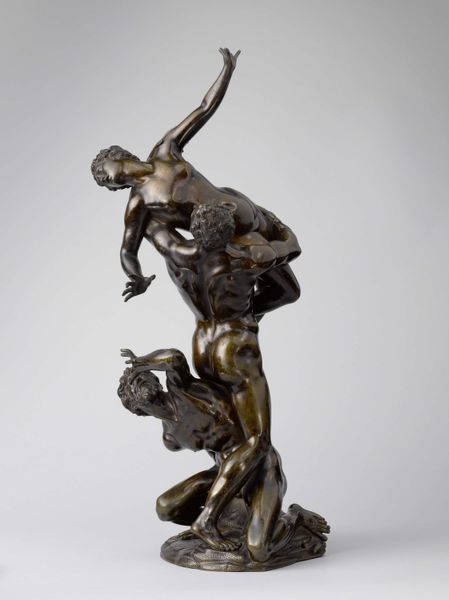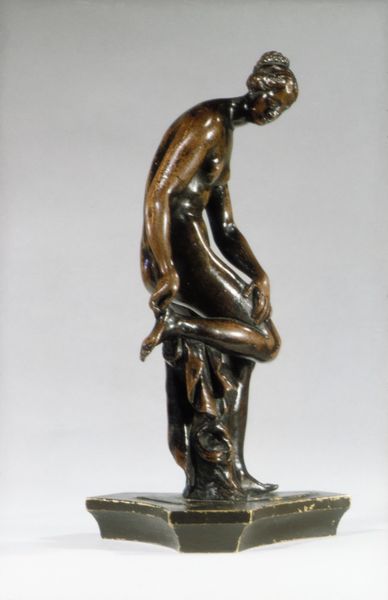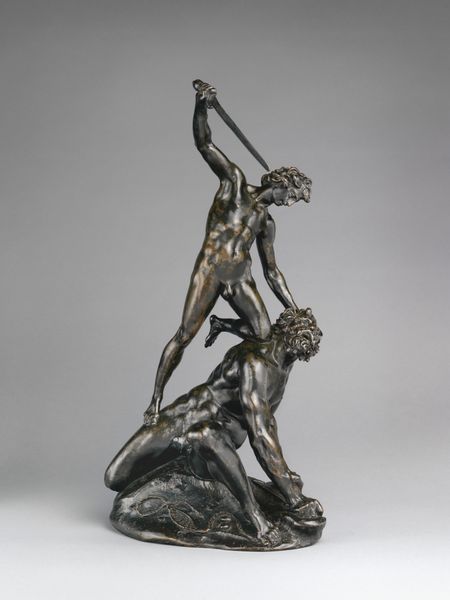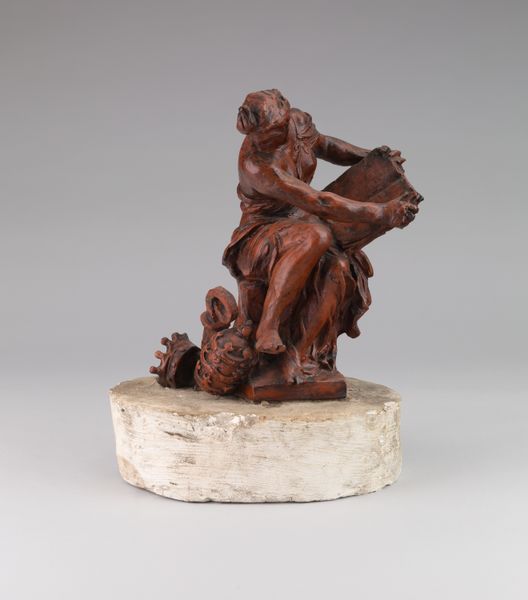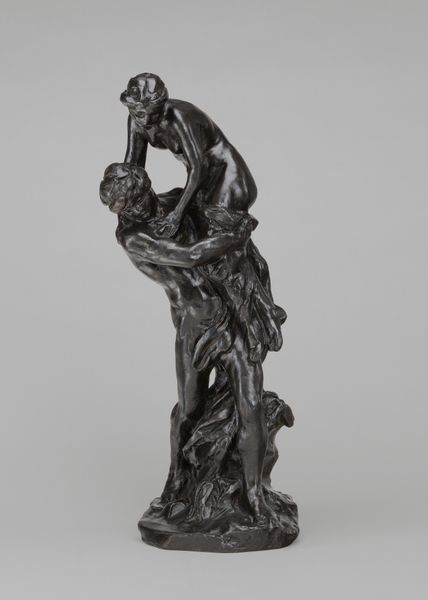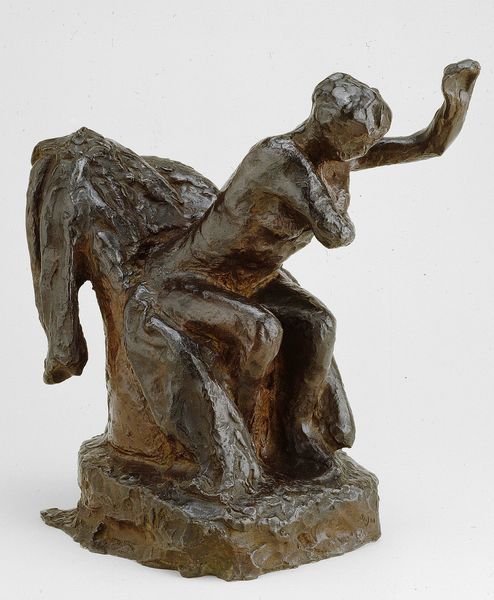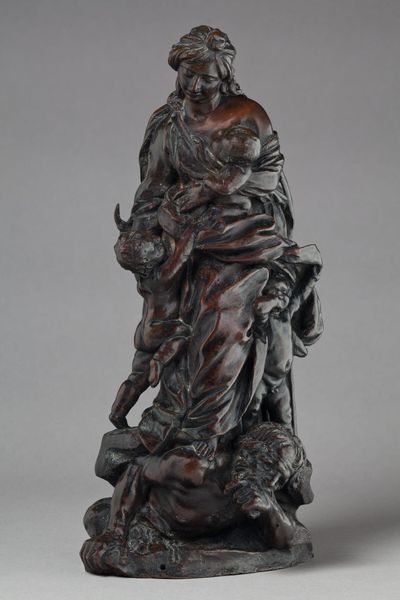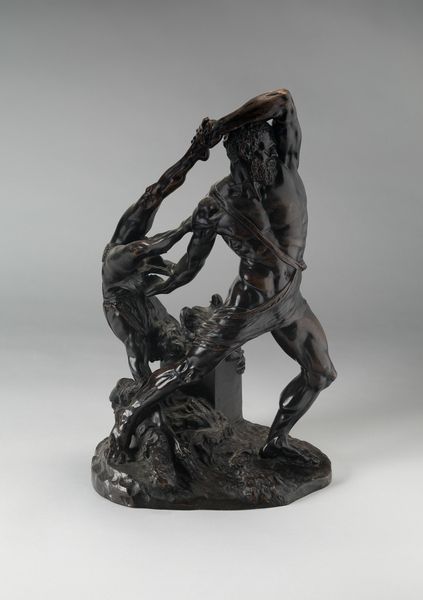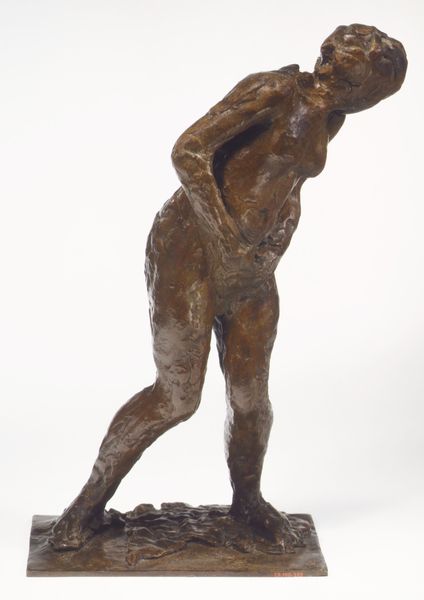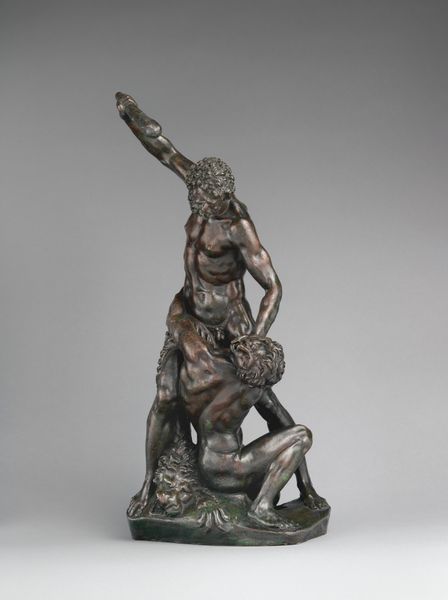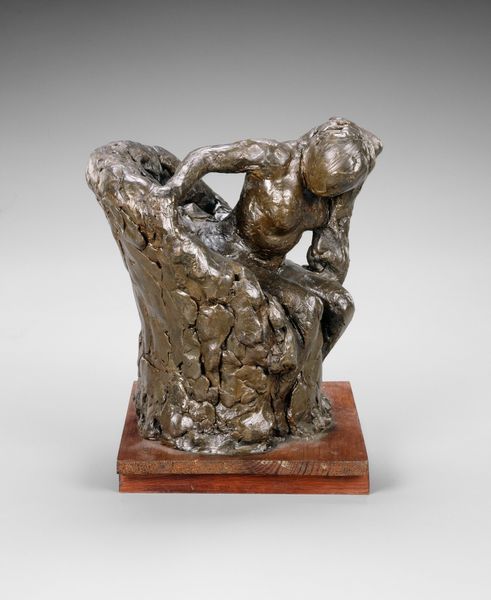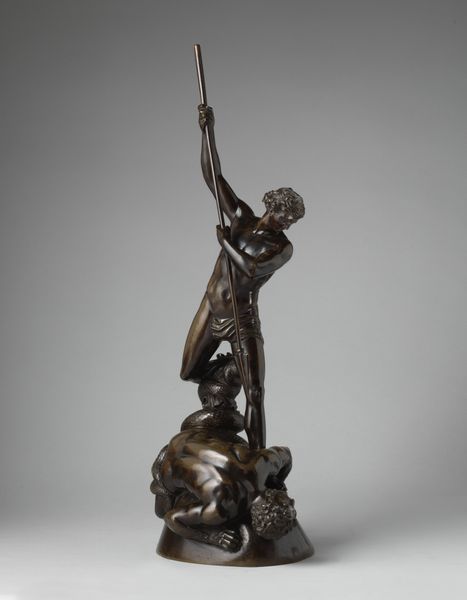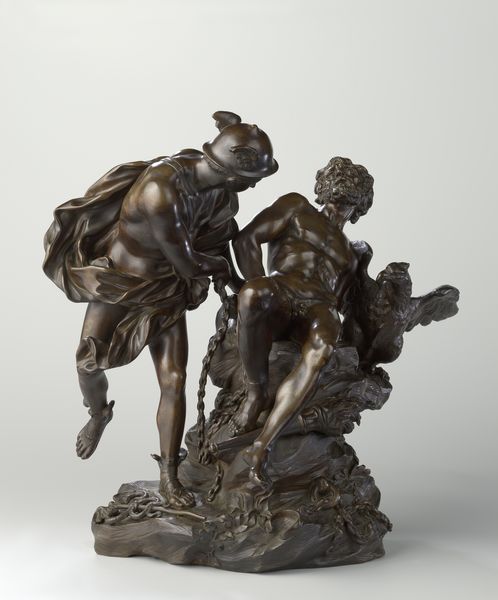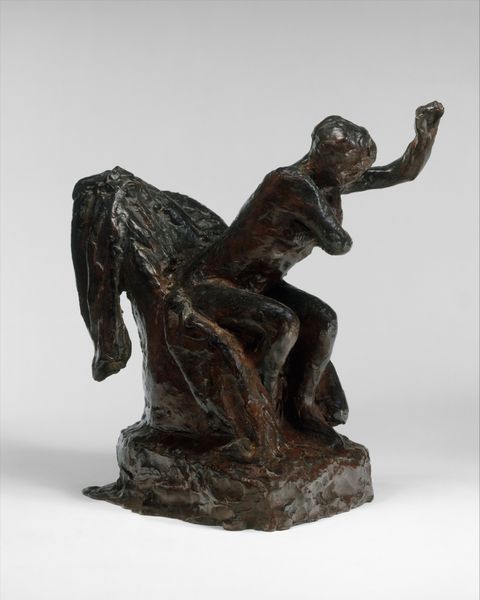
bronze, sculpture
#
narrative-art
#
sculpture
#
bronze
#
figuration
#
sculpture
#
history-painting
Dimensions: 51 x 31 x 22 in. (129.54 x 78.74 x 55.88 cm)
Copyright: Public Domain
Pio Fedi created "Abduction of Polyxena," a sculpture with no specified date, using an unknown medium. This artwork gives us insight into the cultural and social norms of the 19th century when it was made, particularly about the role and representation of women. The sculpture depicts a dramatic scene from Greek mythology, the abduction of Polyxena, daughter of King Priam of Troy, by Pyrrhus, son of Achilles. The emotional and physical tension of the scene is palpable, with Polyxena being forcefully taken, underscoring themes of power, violence, and subjugation. Fedi's sculpture reflects a traditional narrative of female vulnerability and male dominance, yet it also invites us to consider the complexities of Polyxena's fate as a war prize. Does the artist invite us to reflect on the loss of agency and dignity, or to glorify masculine power? "Abduction of Polyxena" encapsulates historical power dynamics, inviting us to reflect on their resonance in our contemporary context.
Comments
minneapolisinstituteofart about 2 years ago
⋮
The dramatic subject of this sculpture fuses a tragic chain of events from the ancient Greek play, Hecuba by Euripides, into one arresting scene. The sculptor shows a young Greek warrior, Neoptolemos, carrying away Polyxena, the beloved of his late father Achilleus, who lies lifeless on the ground. Neoptolemos raises a sword, with which he is about to stab the young woman to death for revenge. In vain, her mother, Hecuba, implores him to stop. Fedi created this sculpture as a model for the colossal marble sculpture, Abduction of Polyxena (1856-1866), which was installed in the Loggia dei Lanzi in Florence. Placed amid several very famous Italian sculptures from classical antiquity and the Renaissance, Fedi’s sculpture group became instantly famous itself for its drama and technical mastery, having been carved out of a single block of marble.
Join the conversation
Join millions of artists and users on Artera today and experience the ultimate creative platform.
